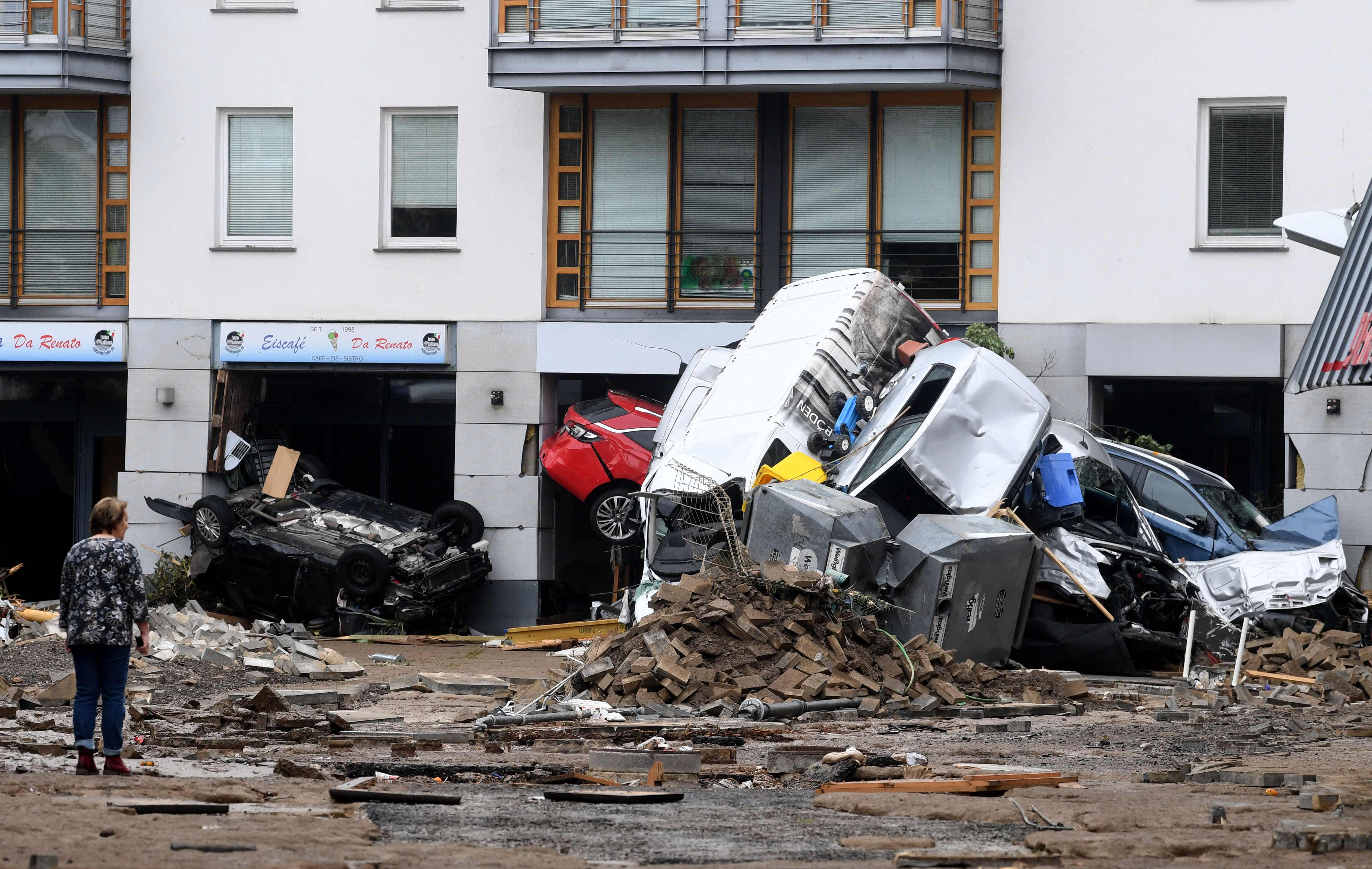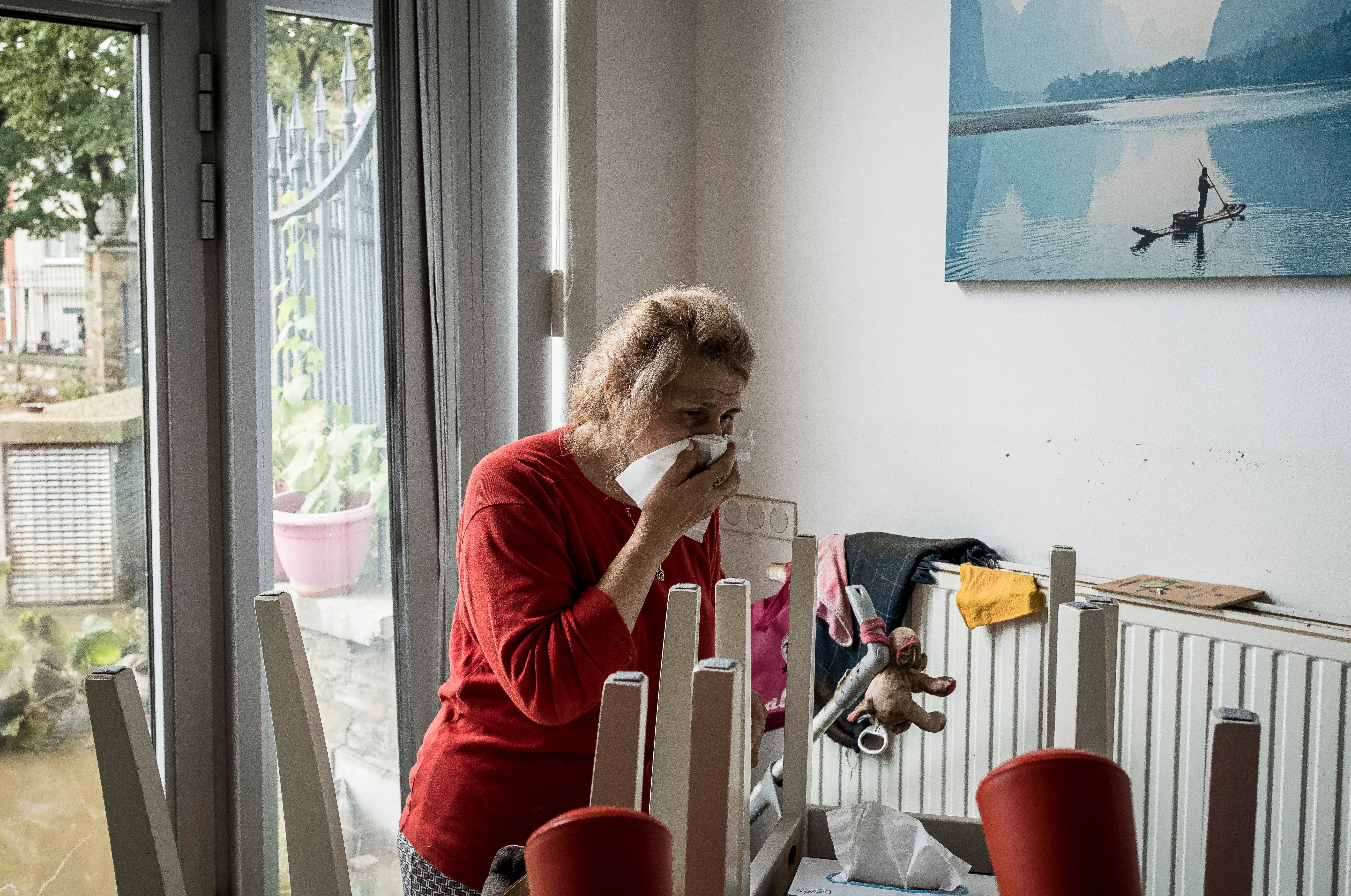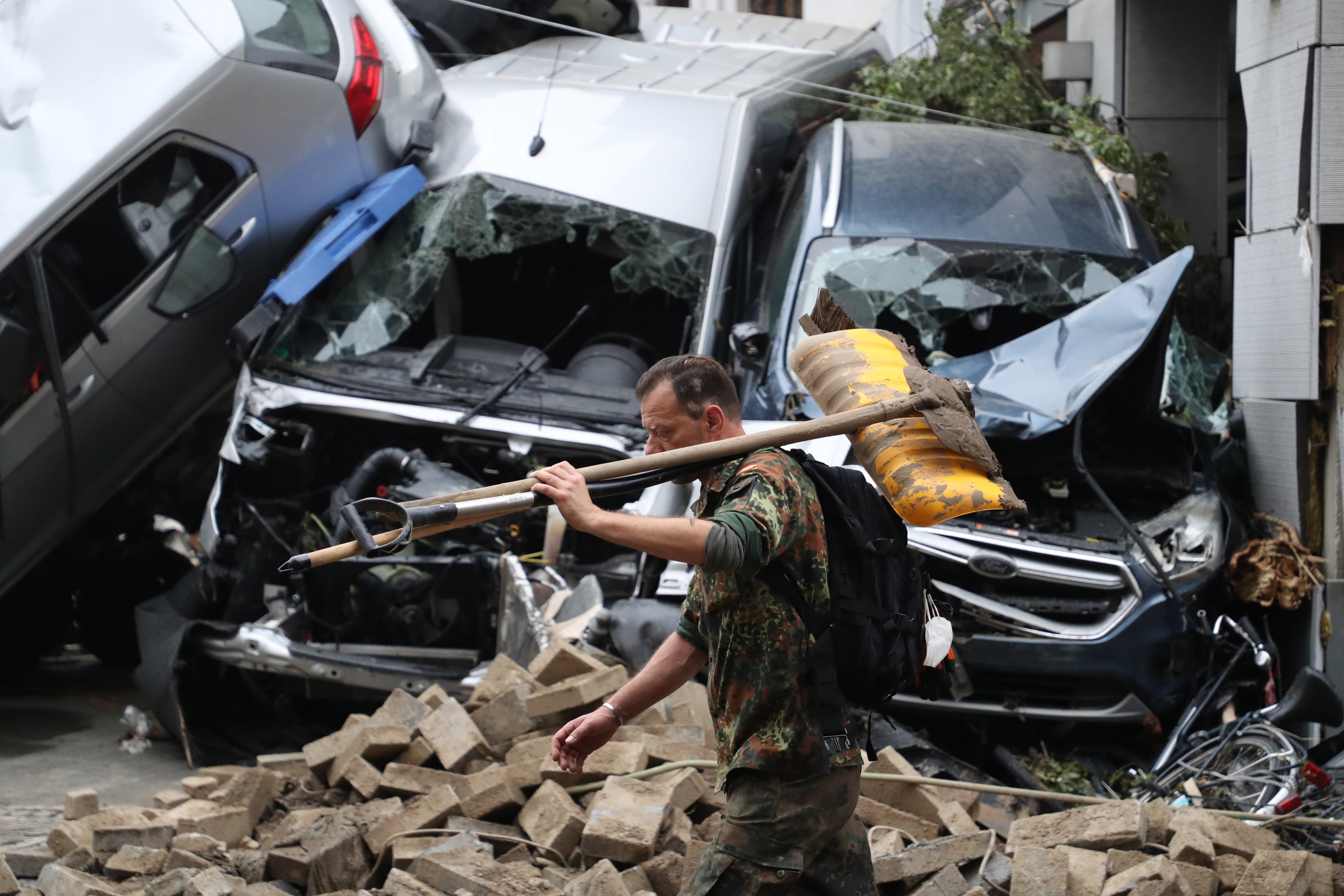‘A national tragedy’: Germany grapples with the scale of deadly flooding disaster
In a country not used to such disasters, the floods have shattered complacency in Germany, reports Erik Kirschbaum in Cologne

Your support helps us to tell the story
From reproductive rights to climate change to Big Tech, The Independent is on the ground when the story is developing. Whether it's investigating the financials of Elon Musk's pro-Trump PAC or producing our latest documentary, 'The A Word', which shines a light on the American women fighting for reproductive rights, we know how important it is to parse out the facts from the messaging.
At such a critical moment in US history, we need reporters on the ground. Your donation allows us to keep sending journalists to speak to both sides of the story.
The Independent is trusted by Americans across the entire political spectrum. And unlike many other quality news outlets, we choose not to lock Americans out of our reporting and analysis with paywalls. We believe quality journalism should be available to everyone, paid for by those who can afford it.
Your support makes all the difference.The worst flooding for more than half a century pummeled a wide swathe of Germany this week, stunning one of western Europe’s largest countries and shattering complacency that disasters on this scale could not happen here.
With the death toll rising to 120 yesterday, local government officials in the two German states hit hardest, Rhineland-Palatinate and North Rhine-Westphalia, said they feared that the grim casualty numbers of those killed in collapsed buildings would keep rising even as the floodwaters recede.
There were still as many as 1,300 unaccounted for, according to some reports, in scores of towns and villages spread across the foothills lying west of the Rhine River. Failed mobile phone networks in the region were complicating efforts to track residents.
In Rhineland-Palatinate, 63 people were killed and about 43 were killed in neighbouring North Rhine-Westphalia.
Another 16 were killed in nearby Belgium while the Netherlands and Luxembourg also experienced flooding.
The images of devastation were shown round the clock on local television – buckled roads, houses washed away, underground gas lines ripped apart and cars floating in floodwaters.
There were scenes of wrecked cars piled up on top of each like stacked toys that German TV reporters described as foul-smelling, with gas lingering in the air in some towns. Some people were rescued from their roofs by helicopters.

The efforts on Friday of local authorities were focused on rescue and recovery as well as providing shelter for those whose homes were obliterated or badly damaged by powerful muddy floodwaters that cascaded down valleys in the rural wine-growing region southwest of Cologne.
The region had been drenched since Tuesday with levels of up to 200 litres per sq metre. Some of the more isolated towns were still cut off from the world on Friday.
“It is a tragedy that so many have lost their lives. It leaves me stunned,” said President Frank-Walter Steinmeier in Berlin, who added in a short statement that the disaster showed the fight against climate change had become more urgent than ever. “My thoughts are with the victims and I feel their fate in my heart. Once the floodwaters recede, we’ll see the enormous level of destruction.”
The flooding that crippled the Rhineland area also caused massive disruption of rail and roadways across much of the west in a country that is accustomed to well-engineered infrastructure.
A 40-metre long section of the A1 motorway had broken off and fallen into the Erft River, forcing its closure.
The sudden vulnerability exposed by several days of heavy rain was further shaking public confidence on Friday in a country just three months before what looks like an uncertain federal election on September 26 that will mark the end of Angela Merkel’s 16 years in power.
Merkel expressed her sorrow for the victims on Thursday in Washington DC during a meeting with President Joe Biden and was back in Berlin on Friday, where she promised federal support for the region while taking part in a crisis conference call with the state premier of Rhineland-Palatinate Manu Dreyer and local authorities.
Some of the worst destruction hit the Ahr River Valley just south of Bonn. The small town of Schund was devastated, destroying six timber homes and tearing holes in about half of the buildings still standing.
Further downstream in Sinzig a home for people with disabilities was overwhelmed by the flooding, killing 12 of the 36 residents living on the ground floor in their sleep. Eyewitnesses said the river that is normally 100 metres away from the building flooded the ground floor in an instant. The survivors were helped out of the upper floors in rescue boats.

“We’re shocked, horrified and inconsolably saddened,” said Ulrich van Bebber, the director of the home, in an interview on local television.
Nerves were on edge in the state of North Rhine-Westphalia where an earthen dam in Euskrichen had been severely weakened by the heavy rains. Authorities had evacuated several nearby villages and were pumping water out of the reservoir behind the dam to prevent it from breaking.
The damage to buildings and roads will likely prompt a round of soul-searching among Germans in the weeks ahead.
One of the world’s wealthiest nations, Germany takes pride in its engineering prowess along with its strict building standards and codes. Several German construction companies are world leaders in building giant infrastructure projects such as roadways, railways, buildings and major airports.
“It’s a national tragedy,” said environment minister Svenja Schulze in an interview with RBB radio in Berlin. “This shows us that climate change has hit Germany. It was a historic level of rainfall.”
Natural disasters are rare in Germany. The North Sea flood of 1962 that hit Hamburg was the country’s worst natural disaster in the last century with about 315 people killed and 60,000 people made homeless.
In 2002, flooding on the Elbe River in eastern Germany killed 21 people. In 2013 a total of about 25 were killed in Germany, Czech Republic, Austria, Switzerland and Poland in flooding.
Join our commenting forum
Join thought-provoking conversations, follow other Independent readers and see their replies
Comments